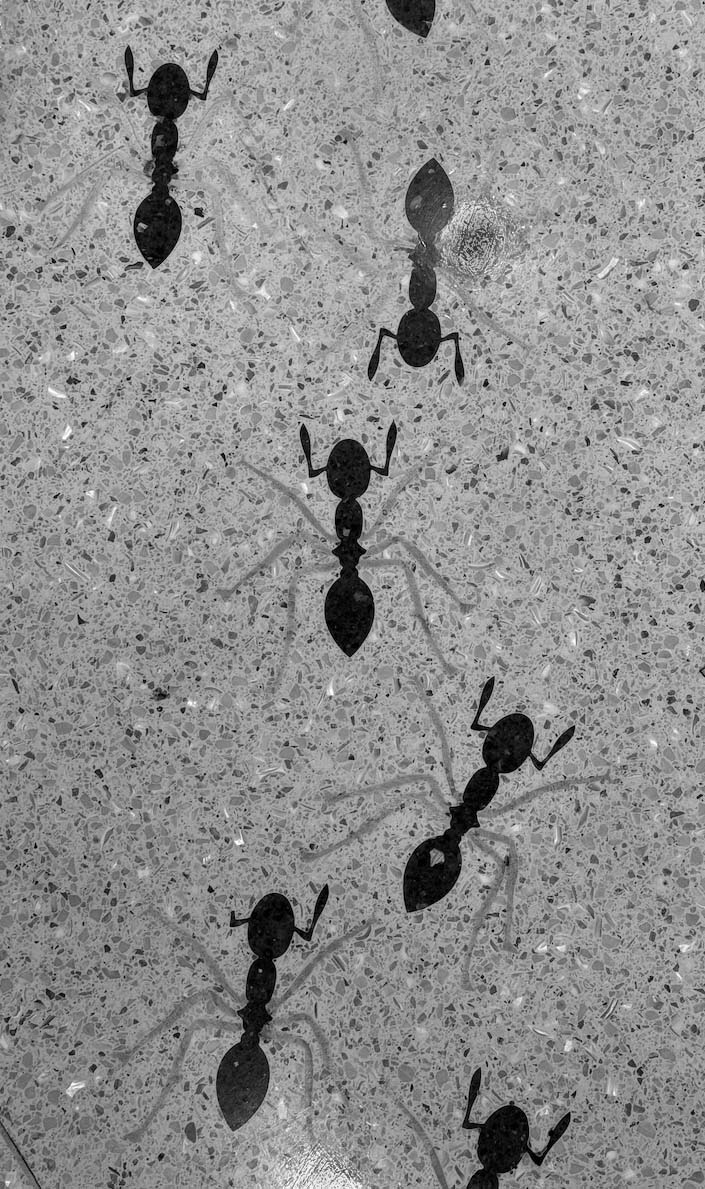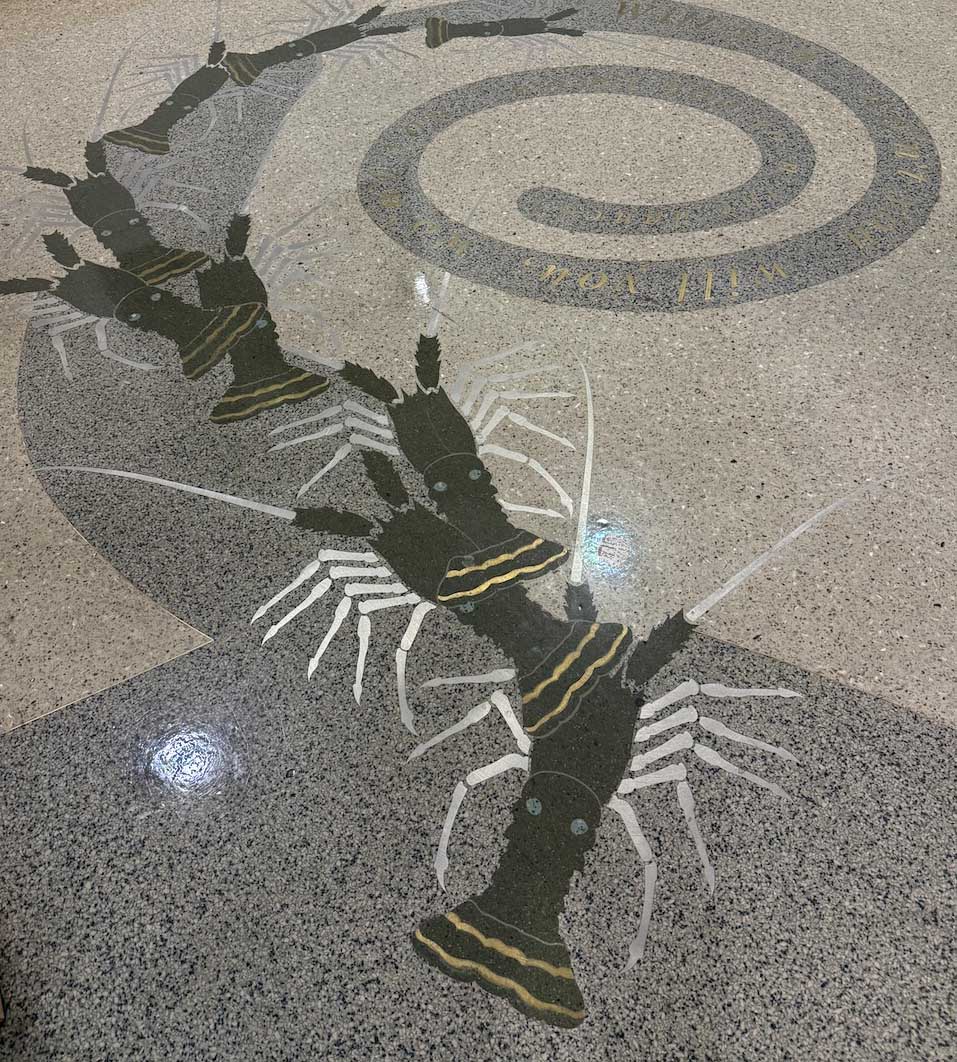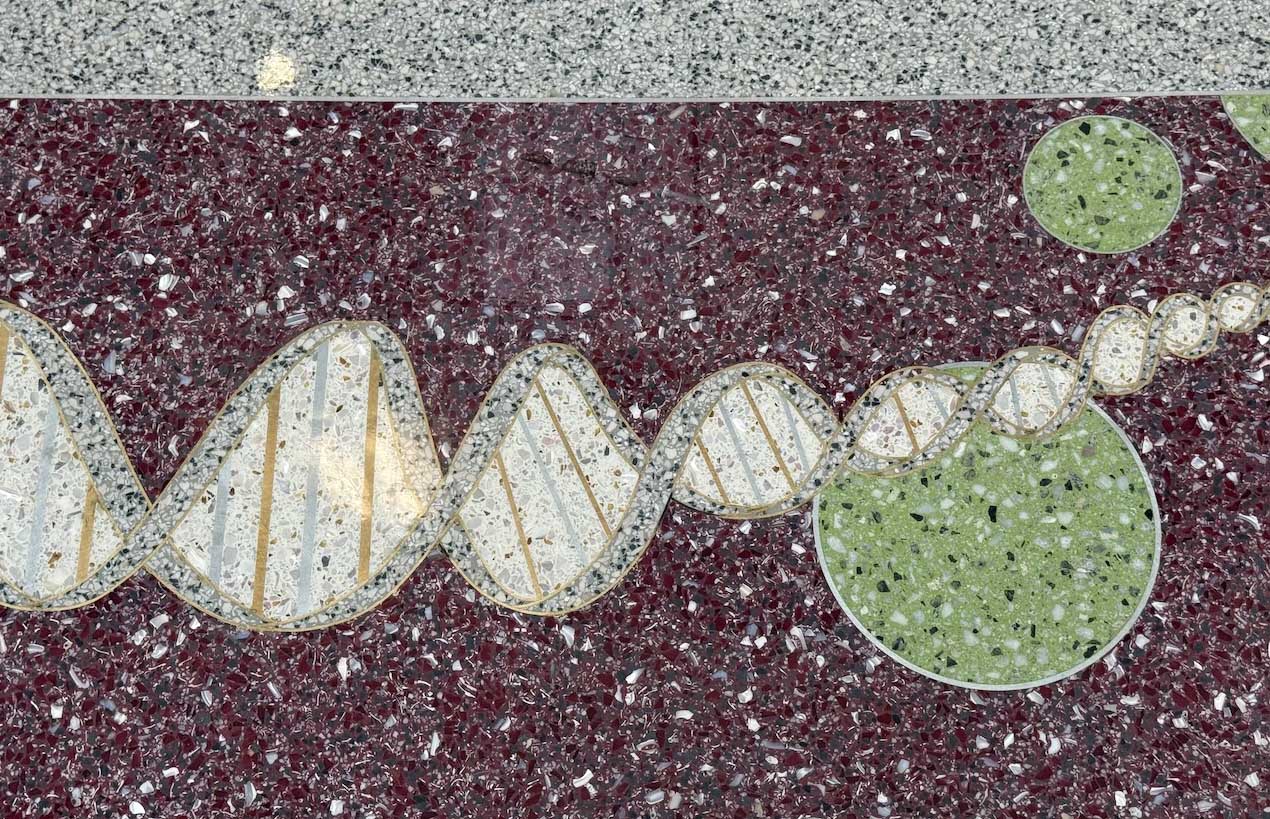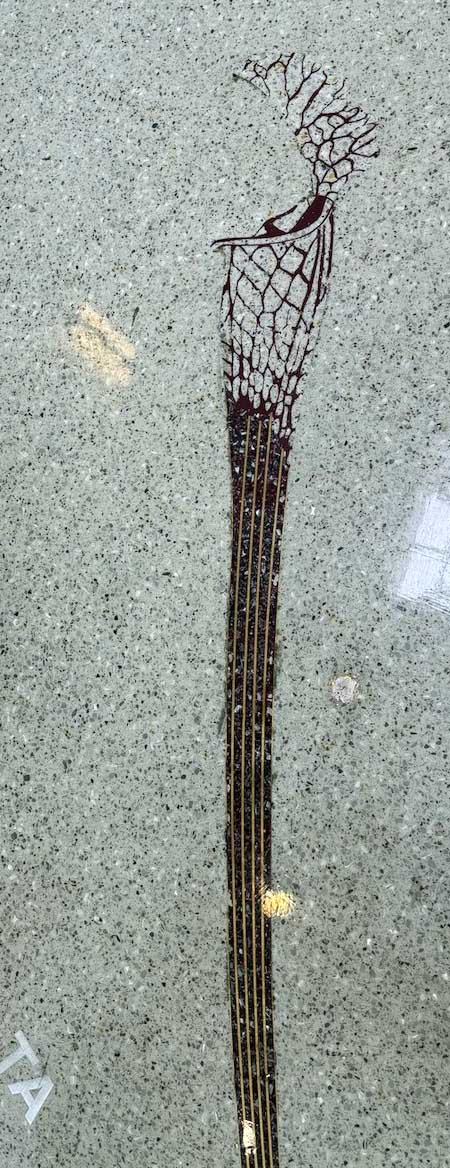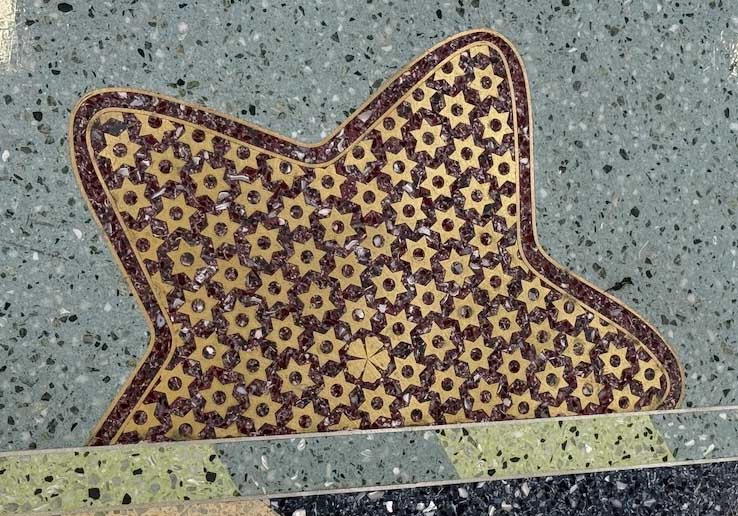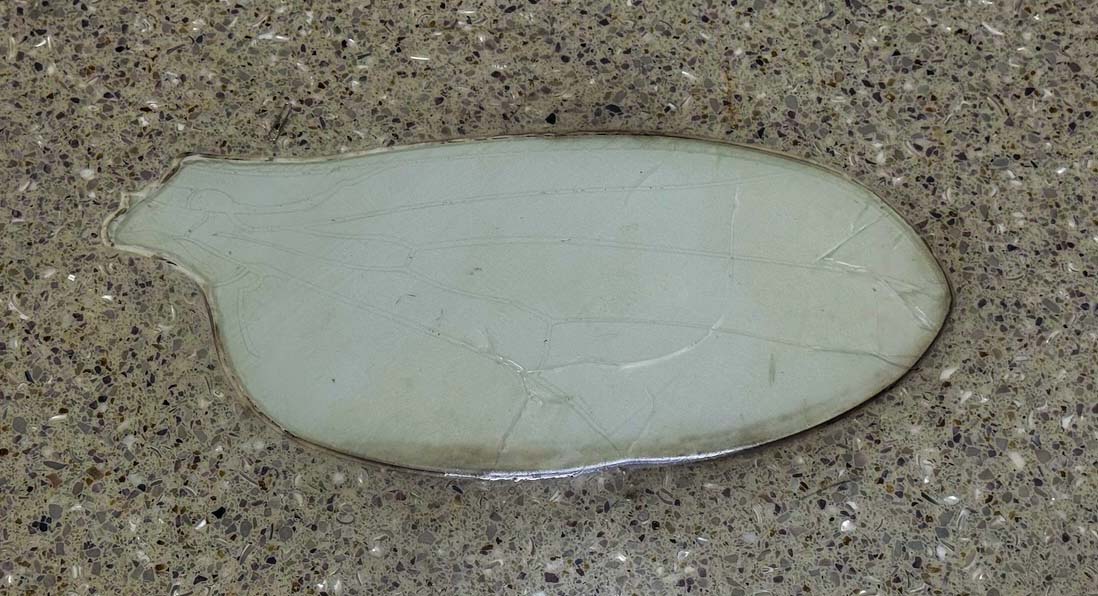The King Building is graced with three artistic elements, a 4,800 square foot terrazzo floor, seven large-scale paintings by internationally celebrated artist Trevor Bell, and photographs of the local environment by our own alumnus Pierson Hill (MS 2011).
Trevor Bell (1930-2017) was an internationally known abstract painter who served on the faculty at FSU as a Professor of Master Painting from 1976-1996. Born in Leeds, England, he later attended the College of Art there and then moved to West Cornwall England where he developed a reputation as one the leading younger St. Ives artists. After much success as an artist throughout the United Kingdom, Bell was invited by Florida State University to become Professor for Master (Graduate) Painting. During his tenure at FSU ,with access to larger studio space, he further developed his signature style. This was distinguished by the large-scale paintings that he is best known for, using a diversity of shaped canvases, eschewing traditional rectangular forms, as well as his dramatic emphasis on contrasting and blended colors. In 1998 Bell was honored with an Emeritus Professorship by FSU. His works can be found in the collections of the British Museum, NSU Art Museum-Ft. Lauderdale, FL, The John and Mable Ringling Museum-Sarasota, FL, Tate Gallery, London, The Victora and Albert Museum, London as well as many other collections nationally and abroad. The FSU Museum has fifty of Trevor’s works in its permanent collection, several of which are displayed in various locations across campus. Six, almost-rectilinear paintings in the “Still” series stand sentinel over the King lobby, while the tapestry-like “Pavanne” graces the reception space outside the main lecture hall, 1024. All paintings are on loan from the collections of the Florida State University Museum of Fine Art.
“For myself, art does not make social statements, but contributes to society on a deeper, less tangible level. I feel that what we should get from art is a sense of wonder, of something beyond ourselves, that celebrates our ‘being’ here.” –Trevor Bell
Bell, Trevor/1930-2017
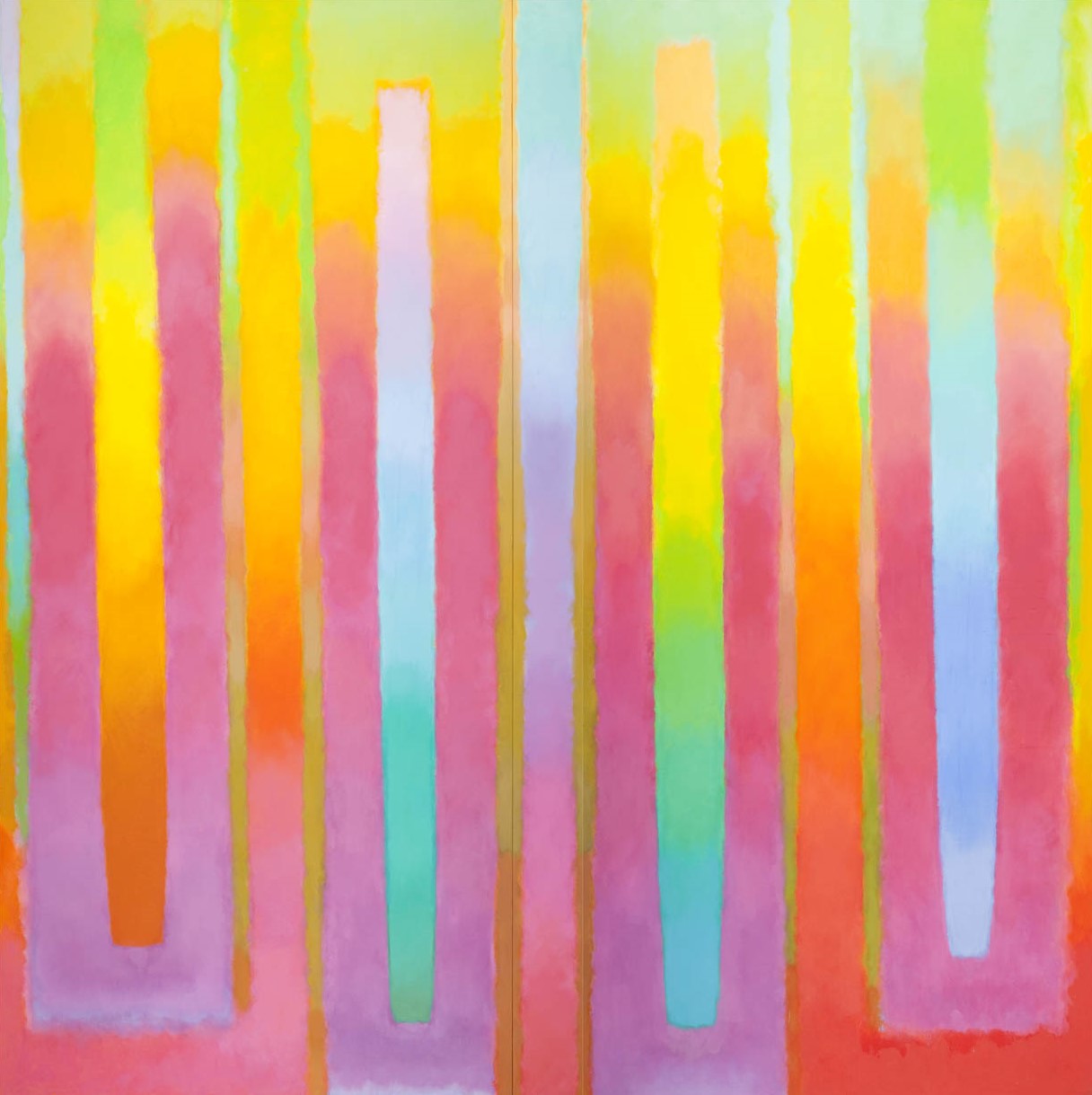
Bell, Trevor/1930-2017
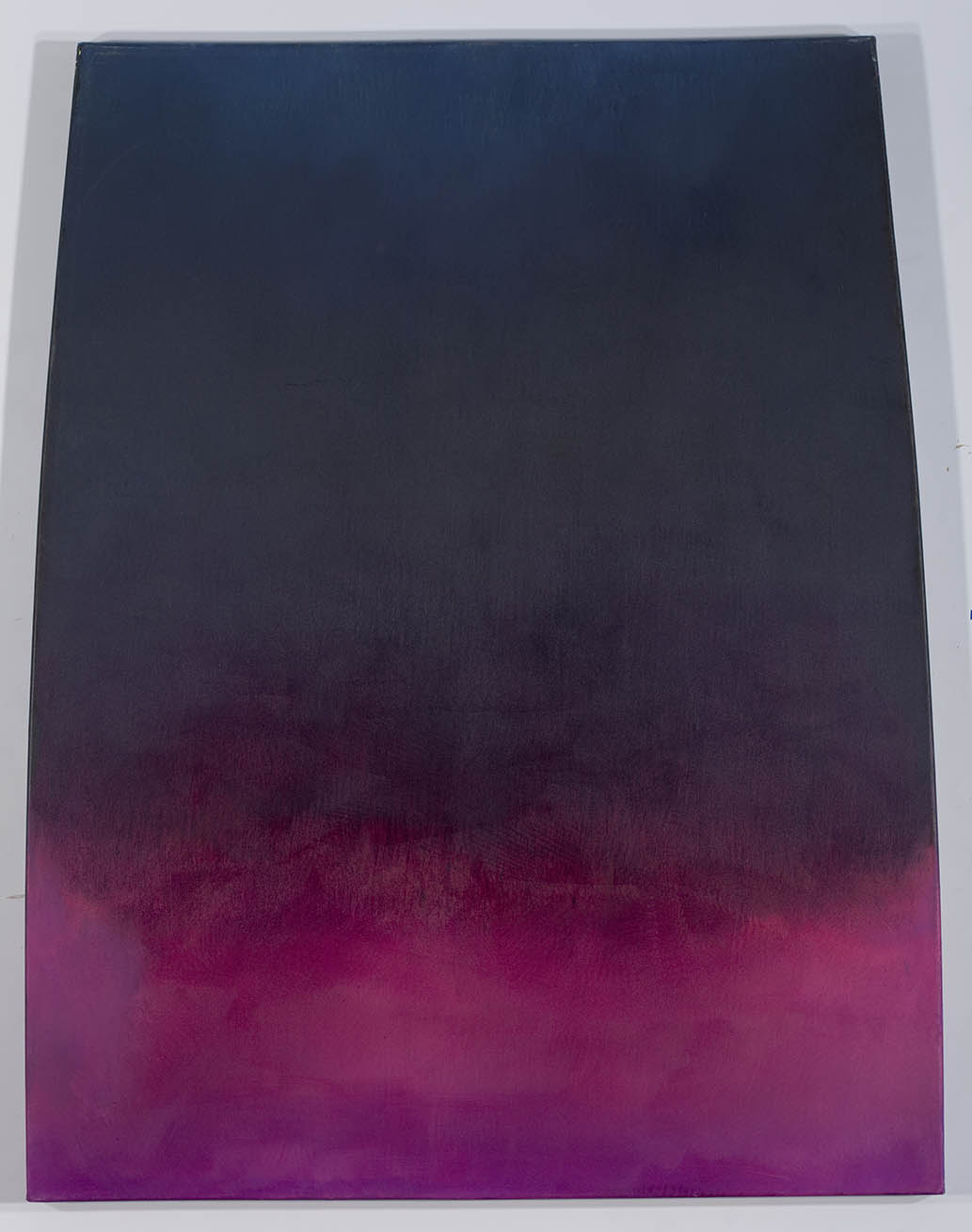
Bell, Trevor/1930-2017
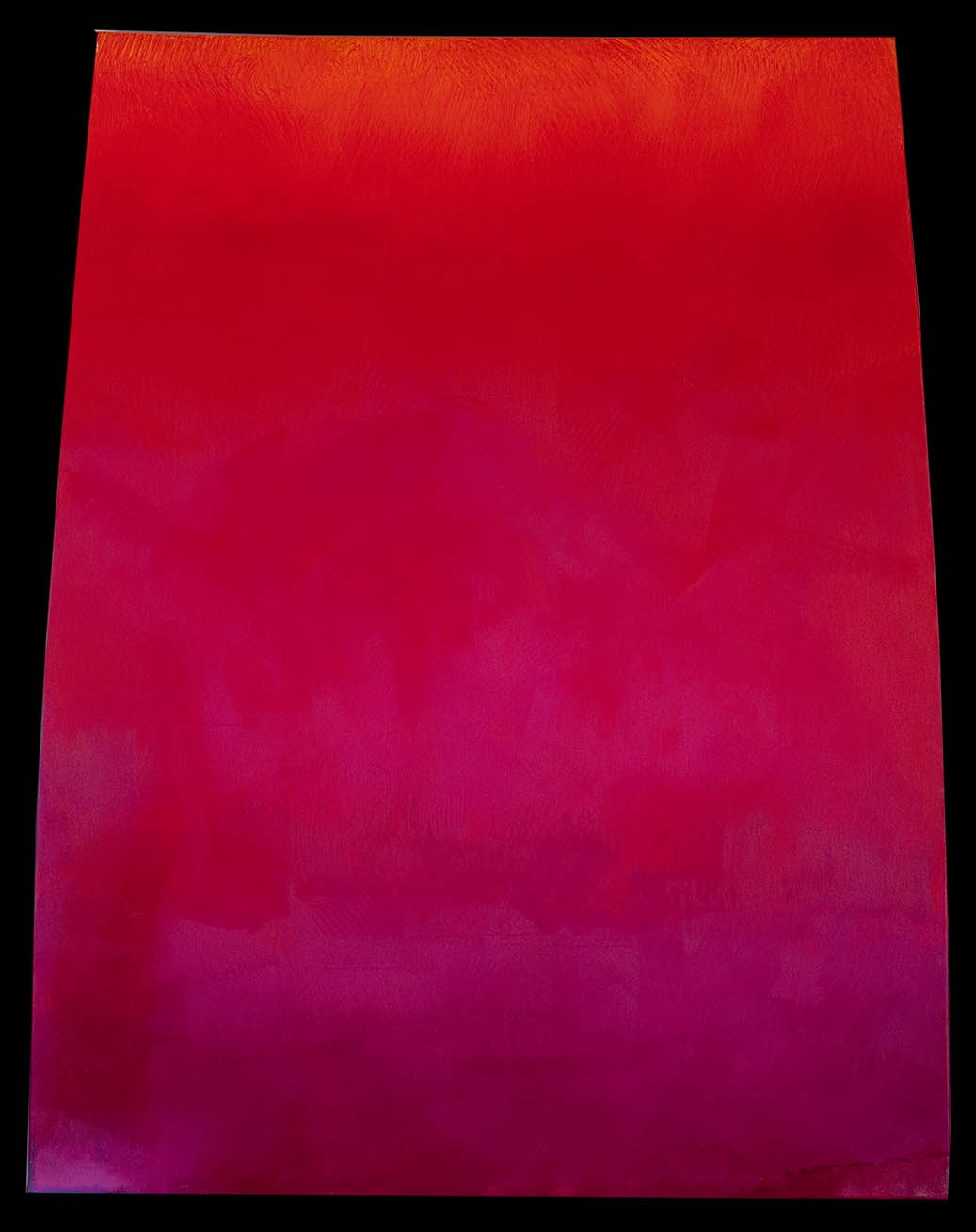
Bell, Trevor/1930-2017
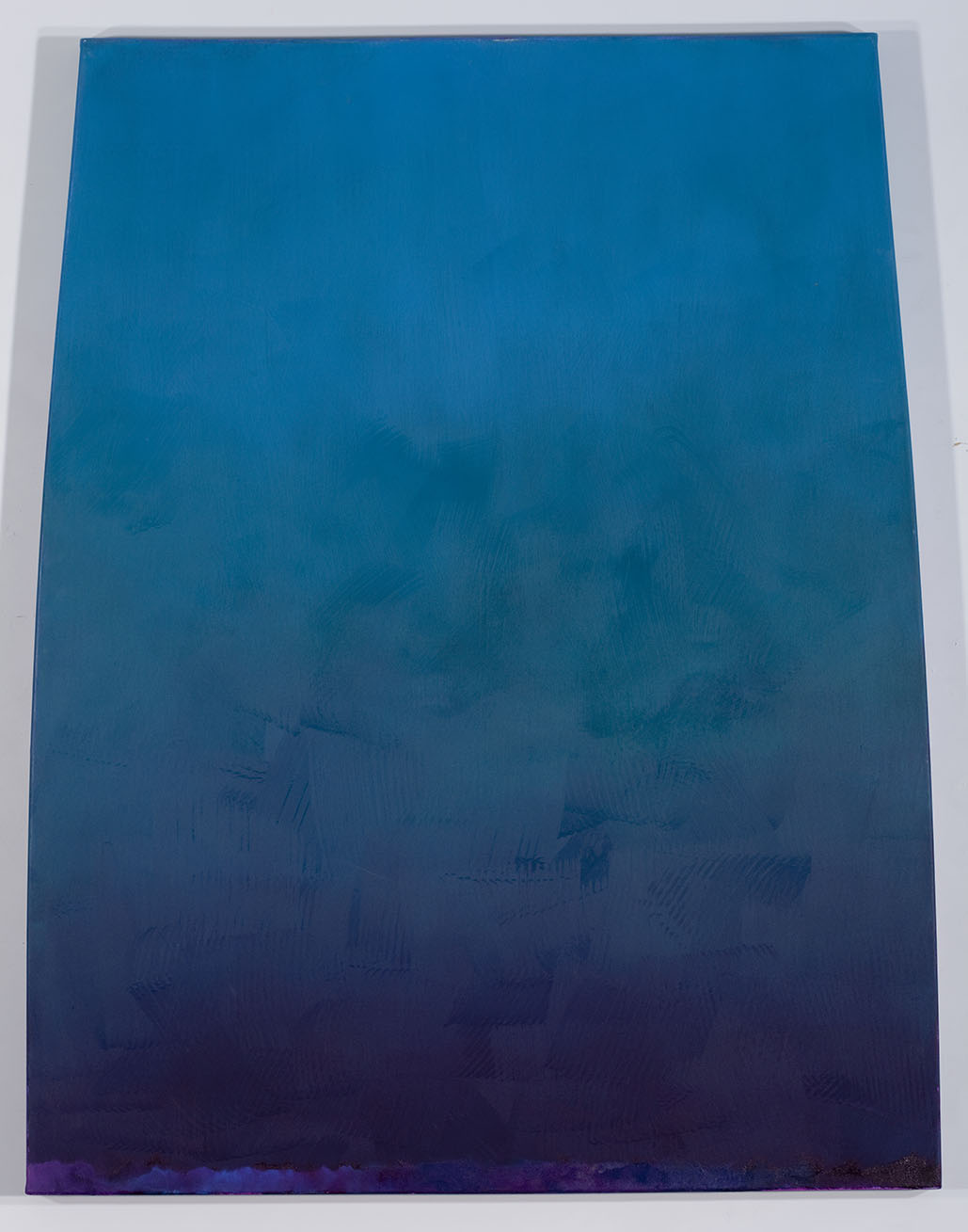
Bell, Trevor/1930-2017
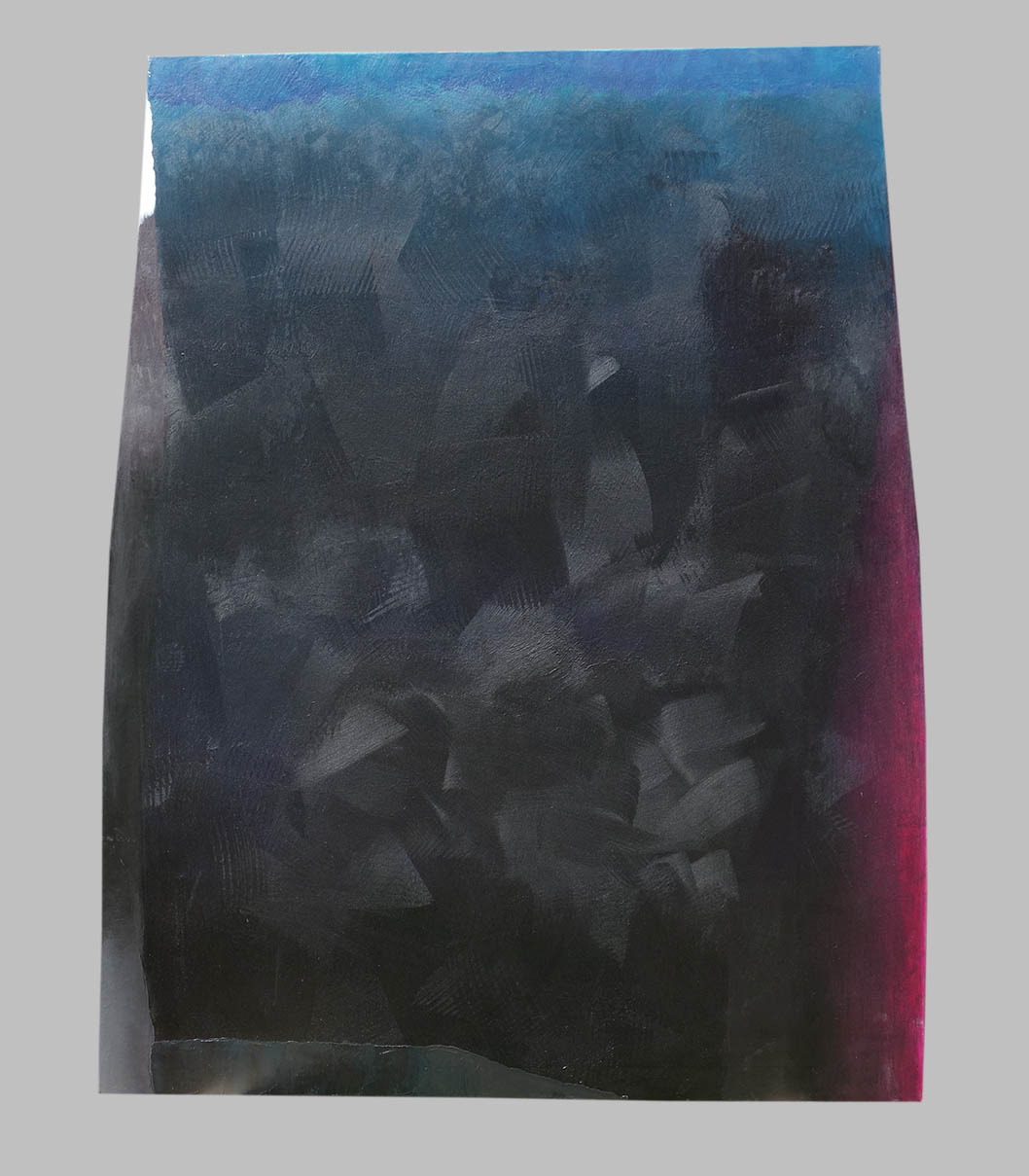
Bell, Trevor/1930-2017
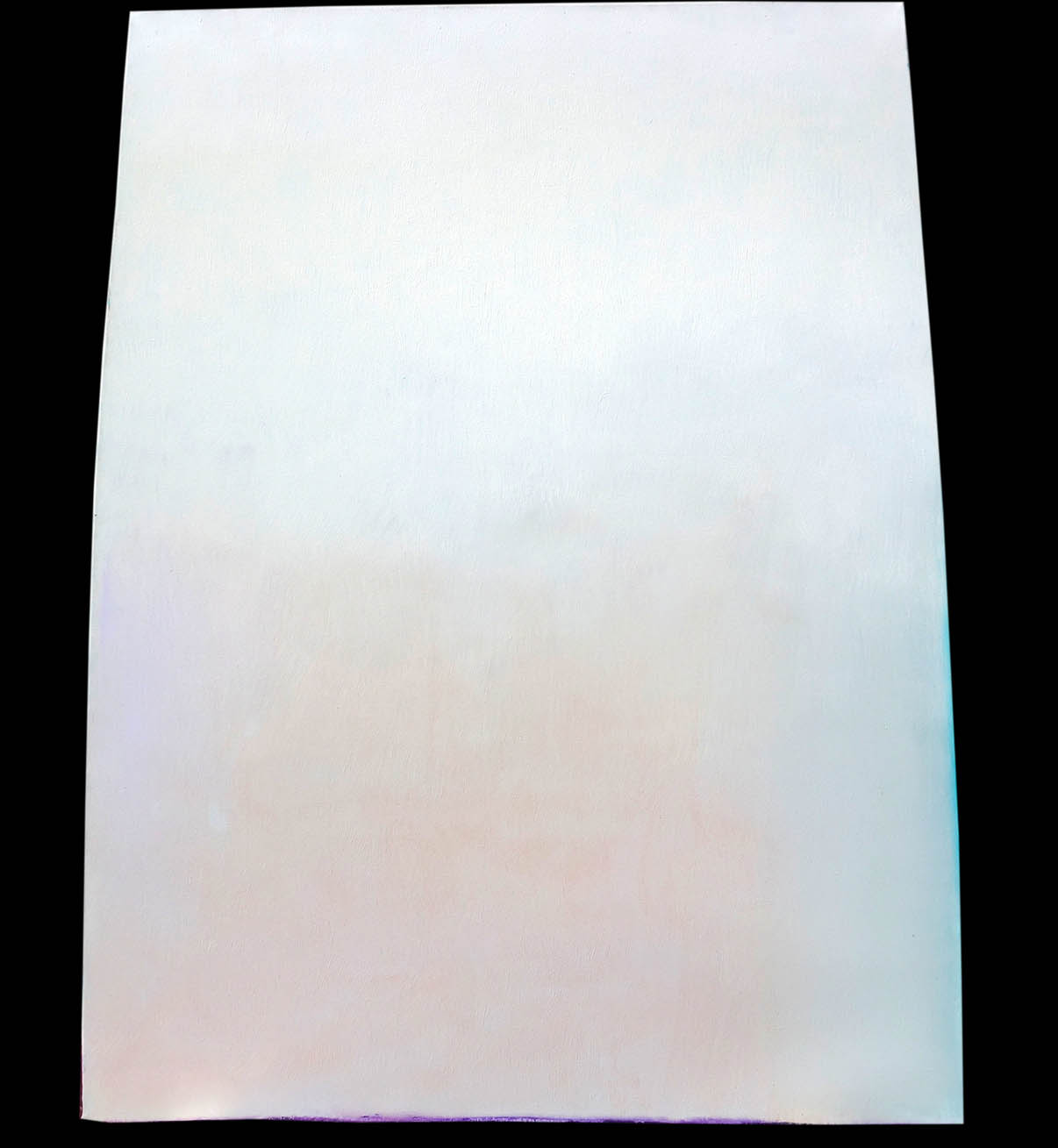
Bell, Trevor/1930-2017
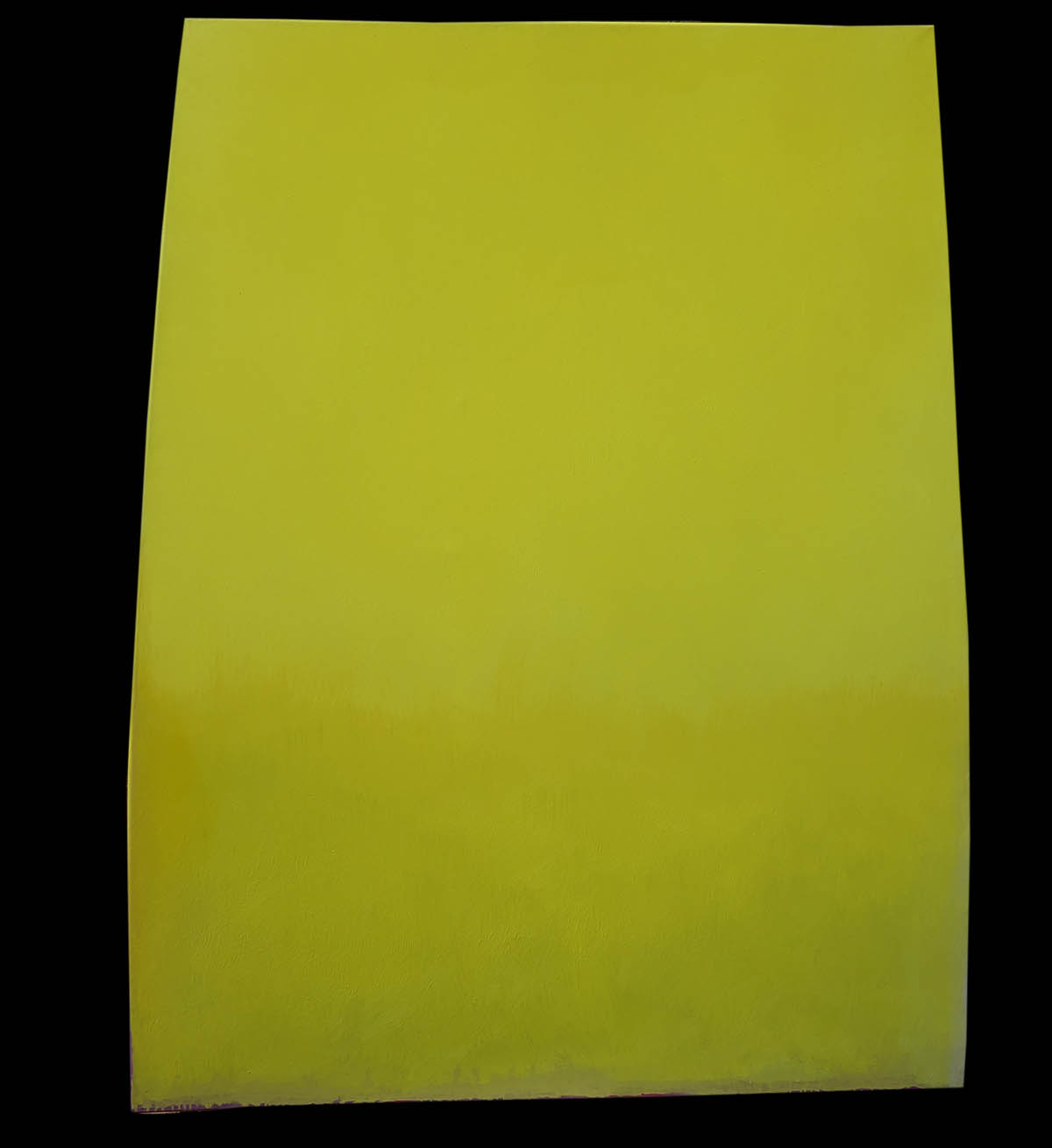
Tying together the entire expanse of the two-story lobby with its connecting hallways is the terrazzo floor designed by Denver artist Carolyn Braaksma (Braaksma Design Inc.), well known for her large-scale public artwork, in collaboration with artist Brad Kaspari. “Life Tapestries” was commissioned by the State of Florida’s Art in State Buildings Program, which purchases or commissions appropriate public artwork to enhance the state’s built-environment. The floor features images drawn from the research conducted by faculty in biology department when the building was constructed, 2009. The margins progressively zoom in on chromosomes down to the nucleotides composing DNA, while the core includes everything from amoebas to starfish to mathematical equations. Element details are described below.
